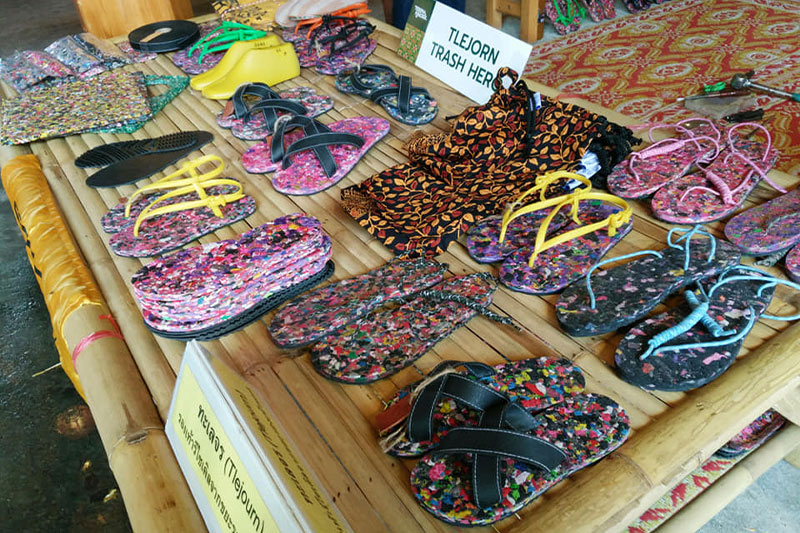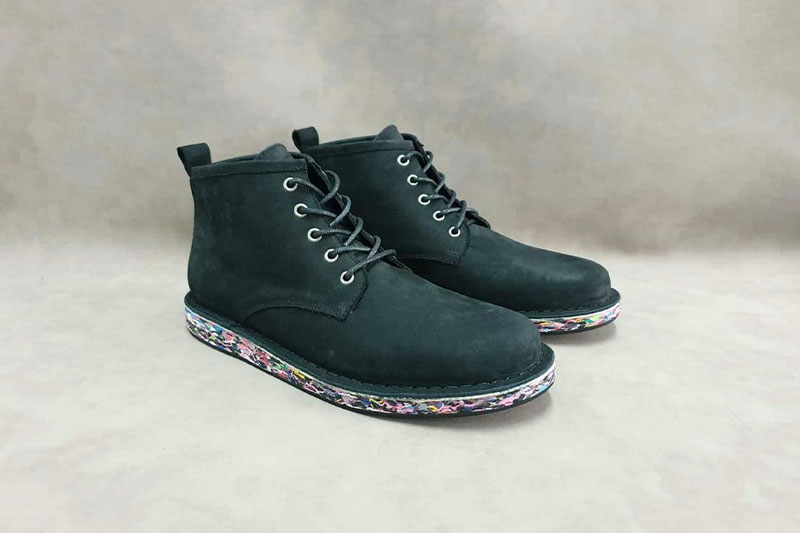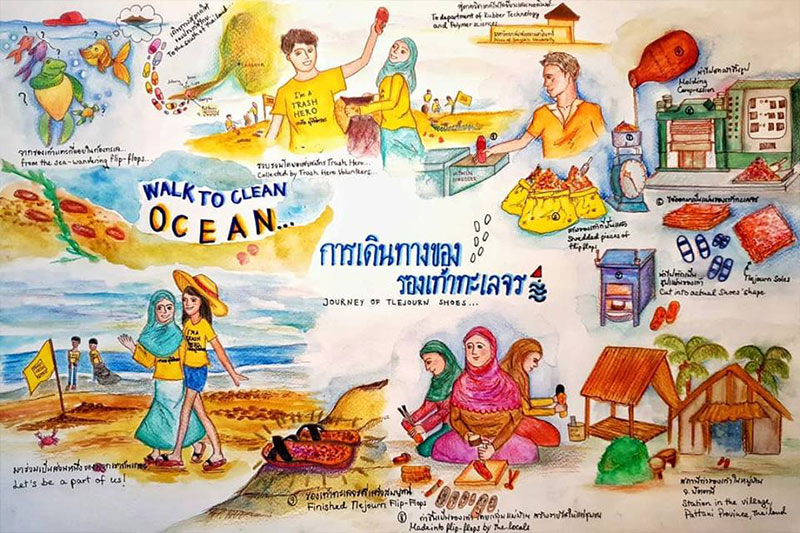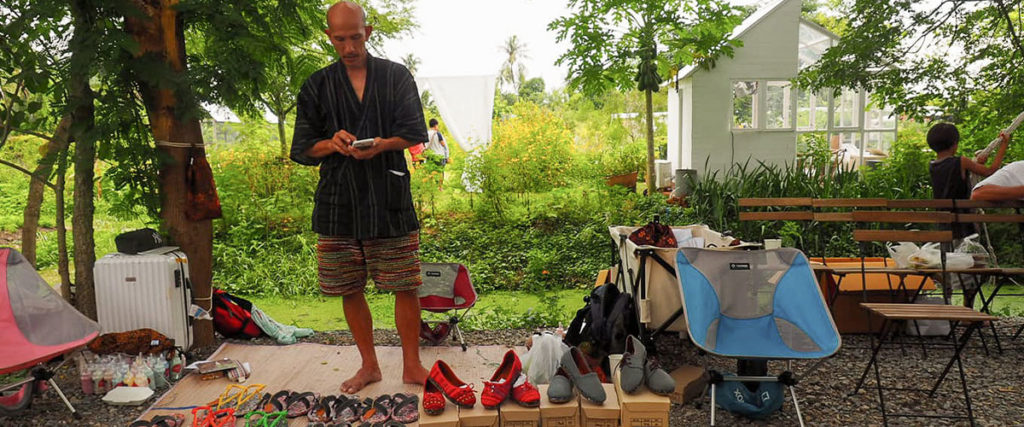Nattapong Nithi-Uthai is the mechanical engineer and university professor behind Tlejourn, a company that creates upcycled shoes by collecting discarded flip flops from the ocean, providing jobs to his community as he does so.
Trash Hero is a volunteer group that started in Thailand about five years ago, rolling out big projects as a community-run organisation to remove waste and educate locals on sustainable measures. When Nattapong Nithi-Uthai found them on Facebook, he asked the group if he could have the flip flops that Trash Hero had amassed during a three-month project on Tarutao Island collecting ocean debris. It turned out, he could. Amongst the thousands of kilograms of debris they’d cleared up, they had found around 100,000 flip flops. This was when Nattapong, the man behind Tlejourn – a Thai and English play on words meaning ‘ocean’ and ‘journey’– realised the magnitude of the problem and decided to try to play his part. “In Thailand, they only started to be aware of the problem when a study was released stating we were number six in the world for leaking pollution into the ocean. This was about three or four years ago,” he explains.

As a mechanical engineer, Nattapong relished the challenge he saw ahead. How could he do what had never been done before and upcycle rubber? The first hurdle was trying to figure out how he would store 8,000 kilograms of flip flops, the weight of the stock that Trash Hero could give to him for free. Here, he did the only thing he could, storing them in a mountainous pile behind his house in Pattani, Thailand where they stayed for six months, becoming home to a few snake nests before he finally came up with the idea that would eventually give these old slippers purpose.
You might also like Cardboard Grannies Could Be Key to City’s Plastic Waste Solution

Nattapong’s problem was a lack of funds – converting these discarded rubber pieces into new, saleable and wearable products was going to cost money. In search of ways to finance his plan, he looked for environmental grants that could help kick it off, but to no avail. “Back then, in Thailand, nobody cared about ocean debris. Five years ago, they were like, ‘What the hell is that?” he laughs. To prove that this rubbish could amount to something, he created an upcycling system that took these flip flops and converted them into soles of brand new shoes by shredding them, mixing the tiny pieces with polymer glue, compressing them into a sheet and then stamping out the shape of a new shoe or slipper. The new soles are then assembled, which brings us to his second collaboration: working with a group of women in a nearby village to see the product through to the finish.

Led by Supatra Cometan, this group of 10, many widowed and in need of income, were already known for crafting and selling small bags out of Supatra’s rural village home. Nattapong took it upon himself to teach them the process of assembling the new upcycled footwear, also agreeing to purchase their handcrafted cloth bags to be used as packaging for Tlejourn’s upcycled product. The non-profit company pays the community for their labour upfront and has so far contributed THB 650,000 of Tlejourn’s earnings to these women in the last four years. With the help of these women, they’ve made about 5,000 pairs of shoes, each pair being sold for THB 399.
Now, Nattapong is focused on selling Tlejourn’s footwear by telling this story. What began as a pairing of separate organisations – a volunteer trash collection group called Trash Hero and a group of women villagers with amazing craft skills – is now a project responsible for a product that saves ocean debris from ending up in a landfill, all while supporting a small business that’s run out of a rural home. Working to collaborate with different brands to share Tlejourn’s principles, he has worked with all sorts of companies, from a traditional cloth brand in Chiangmai to TiiD School of Leather and Shoemaking, to upcycle material and provide jobs to those in need. “The knowledge of how we make these shoes is free. We want to teach everyone to take different resources and learn to give them back to the public.”
Related Articles
This AI System Could Be The Solution To Cutting Down on Food Waste
Reusable Cups Aren’t the Answer. Compostable Ones Are. Here’s Why.





